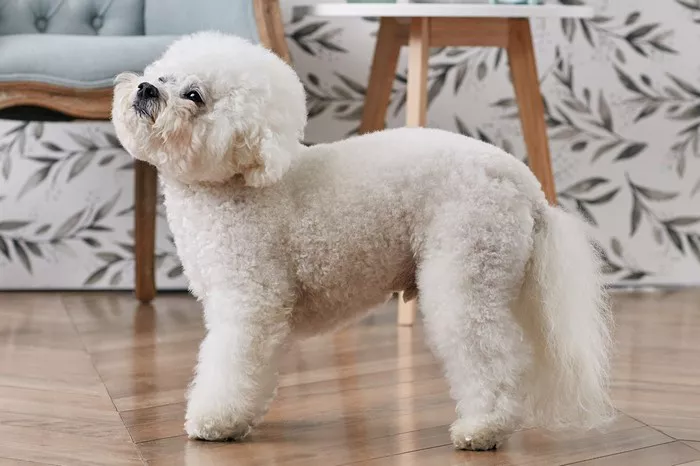The Bichon Frise is a small, charming dog breed known for its fluffy white coat and cheerful disposition. Many dog enthusiasts and prospective owners often wonder about the specific characteristics and health concerns related to this breed. One common question is whether the Bichon Frise is a brachycephalic breed. In this article, we will explore the skull structure of the Bichon Frise, compare it to brachycephalic breeds, and discuss any health implications associated with their anatomy.
What Does Brachycephalic Mean?
Definition and Characteristics
Brachycephalic is a term derived from Greek, where “brachy” means short and “cephalic” means head. Thus, brachycephalic breeds have a short, broad skull. This anatomical structure leads to a flattened face and nose, resulting in certain distinct features and potential health issues. Key characteristics of brachycephalic breeds include:
Shortened Nasal Passages: Leads to breathing difficulties.
Protruding Eyes: More prone to injuries and infections.
Crowded Teeth: Due to a smaller jaw structure.
Skin Folds: Especially around the face, which can harbor bacteria.
Examples of Brachycephalic Breeds
Common brachycephalic breeds include:
- Bulldogs
- Pugs
- Shih Tzus
- Boxers
- French Bulldogs
These breeds are well-known for their distinct facial appearance, which is a direct result of their brachycephalic skull structure.
The Bichon Frise Skull Structure
Skull Shape
The Bichon Frise does not possess the typical brachycephalic skull shape. Instead, they have a more moderate skull structure, which is not excessively short or broad. Key features of the Bichon Frise’s skull include:
Moderately Rounded Skull: Not as flat-faced as brachycephalic breeds.
Proportionate Muzzle: The muzzle is balanced and not overly shortened.
Large, Dark Eyes: Set within a moderately shaped face, not protruding.
Comparison to Brachycephalic Breeds
When compared to brachycephalic breeds, the Bichon Frise’s skull structure is significantly different. They do not exhibit the same degree of facial flattening or the associated health issues. Their moderate skull shape allows for better airflow and fewer respiratory problems.
Health Implications of the Bichon Frise’s Skull Structure
Respiratory Health
Due to their non-brachycephalic structure, Bichon Frises typically do not suffer from the severe respiratory issues seen in brachycephalic breeds. They have:
Better Airflow: Longer nasal passages facilitate easier breathing.
Fewer Snoring Issues: Less likely to snore compared to brachycephalic breeds.
Reduced Risk of Heat Intolerance: Better ability to regulate temperature through panting.
Dental Health
The Bichon Frise’s jaw structure allows for better dental alignment compared to brachycephalic breeds. This results in:
Less Crowding of Teeth: More space in the jaw for teeth, reducing the risk of dental problems.
Easier Dental Care: Less frequent dental issues make it easier to maintain oral hygiene.
Eye Health
While the Bichon Frise has large, expressive eyes, they are not as prone to the eye problems that affect brachycephalic breeds. They are less likely to suffer from:
Proptosis: The condition where the eye can pop out of its socket, more common in breeds with protruding eyes.
Dry Eye: Better eyelid closure reduces the risk of dry eye.
Skin Health
Bichon Frises have fewer facial folds compared to brachycephalic breeds, reducing the risk of skin infections and irritations. This leads to:
Lower Risk of Dermatitis: Fewer skin folds mean fewer places for bacteria to thrive.
Easier Skin Care: Simplified grooming and cleaning regimen.
Grooming and Care for Bichon Frise
Regular Grooming
Bichon Frises have a curly, double coat that requires regular grooming to prevent matting and keep their skin healthy. Key grooming practices include:
Regular Brushing: At least a few times a week to prevent tangles and mats.
Professional Grooming: Every 4-6 weeks to maintain coat health and hygiene.
Bathing: Monthly baths with dog-friendly shampoo to keep the coat clean.
Dental Care
Even though Bichon Frises have better dental alignment, regular dental care is essential:
Brushing Teeth: At least a few times a week with dog-specific toothpaste.
Dental Chews: Helps in reducing plaque and tartar build-up.
Regular Vet Check-ups: Annual dental examinations and cleanings.
Eye Care
Bichon Frises can be prone to tear staining around the eyes. Proper eye care includes:
Cleaning Tear Stains: Regularly wipe the area around the eyes with a damp cloth.
Monitoring for Infections: Keep an eye out for redness, swelling, or discharge.
Using Eye Drops: As recommended by the vet for any specific issues.
Common Health Concerns in Bichon Frises
Allergies
Bichon Frises can be prone to allergies, which can affect their skin, ears, and overall health. Common allergens include:
Environmental Allergens: Pollen, dust mites, mold.
Food Allergies: Certain proteins, grains, or additives.
Contact Allergies: Flea bites, shampoos, or cleaning products.
Patellar Luxation
This condition involves the dislocation of the kneecap and is relatively common in small breeds like the Bichon Frise. Symptoms include:
Limping or Lameness: Sudden or intermittent.
Difficulty Walking: Particularly on stairs or uneven surfaces.
Treatment: Depending on the severity, treatment can range from physical therapy to surgical intervention.
Bladder Stones
Bichon Frises are prone to developing bladder stones, which can cause urinary issues. Symptoms include:
Frequent Urination: Often with small amounts of urine.
Blood in Urine: Visible blood or a pinkish tint.
Painful Urination: Signs of discomfort or straining while urinating.
Treatment: Dietary changes, medication, or surgery.
Ear Infections
Their floppy ears can create a warm, moist environment conducive to infections. Preventive measures include:
Regular Ear Cleaning: Using vet-recommended ear cleaners.
Monitoring for Signs of Infection: Redness, odor, discharge, or excessive scratching.
Prompt Treatment: If an infection is suspected, seek veterinary care immediately.
See also: Can a Golden Retriever Live Outside?
Conclusion
The Bichon Frise is not a brachycephalic breed. Their moderate skull structure provides them with several advantages over brachycephalic breeds, particularly in terms of respiratory, dental, and eye health. While they do have some breed-specific health concerns, regular grooming, proper care, and routine veterinary check-ups can help keep a Bichon Frise healthy and happy. Understanding their unique needs and characteristics will ensure that you can provide the best care for your fluffy companion.


